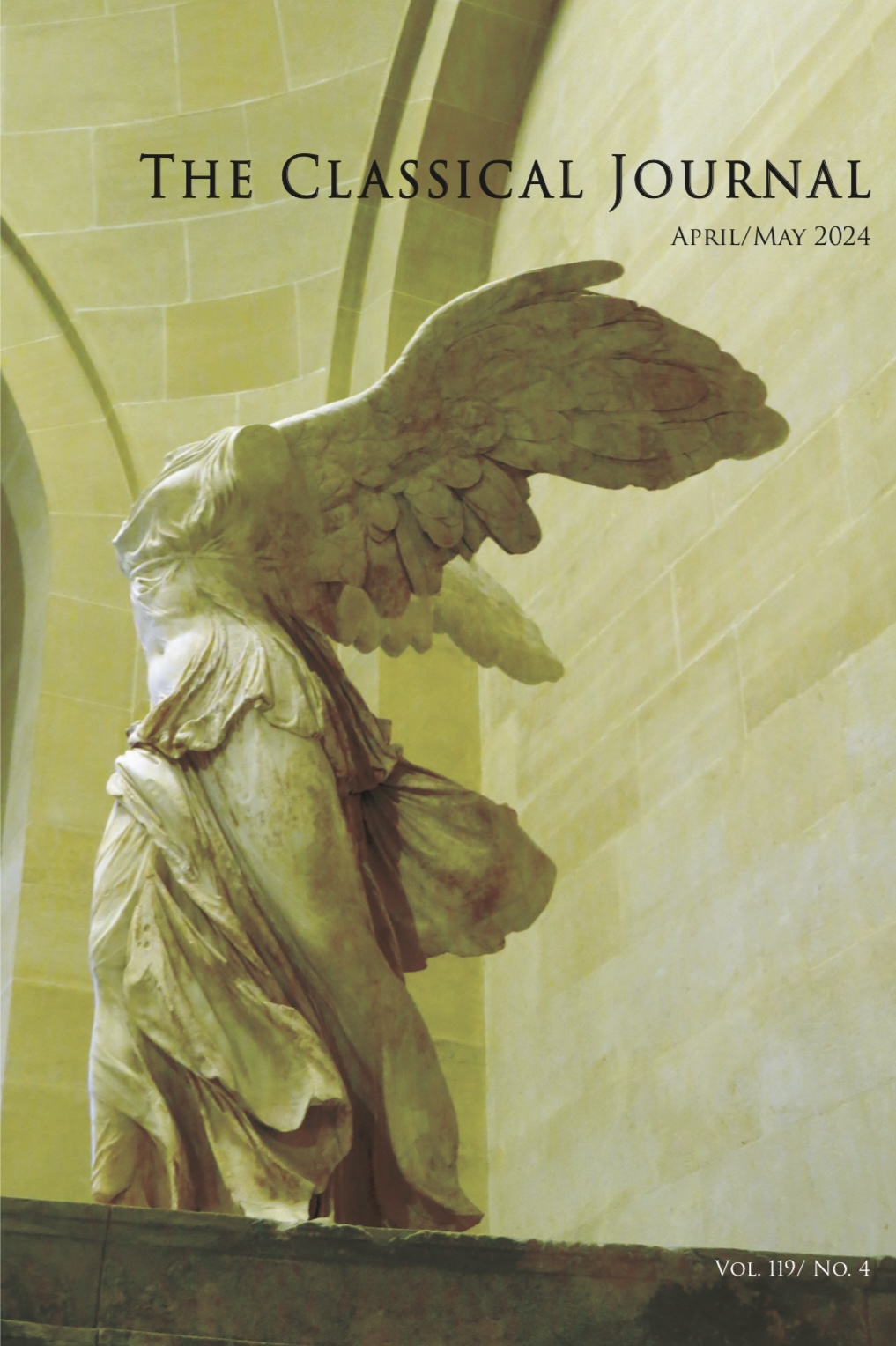The following articles are contained in CJ
102.2
Abstracts of Articles
GLADIATORIAL COMBAT: THE RULES OF ENGAGEMENT
Though a dangerous and potentially fatal contest, gladiatorial combat during the Empire was nevertheless bound by recognizable rules and expectations. The contests were fought by expensive professionals and supervised by referees. But more than this, these combats may also have been governed by an unwritten 'code of conduct' enforced by the gladiators themselves: to fight bravely in hope of victory, but not to wound or kill needlessly.
AEOLISM: LATIN AS A DIALECT OF GREEK
Aeolism, the idea that Latin is a dialect of Greek, was a matter of debate among a wide range of authors and readers in the Roman world. Often interpreted psychoanalytically, the idea is better understood as articulating a grudging ancient awareness that languages and social groups, including seemingly distinct groups like 'Greeks' and 'Romans,' are in fact always 'mixed,' and thus that identity is a matter of fluid participation in shared social practices.
DARDANUS' INSCRIPTION REVISITED
The well-known inscription of Claudius Postumus Dardanus at Theopolis is not simply a commemoration of a building project; it is also a declaration of Dardanus' loyalty to the Roman administration and concern for his community, and reflects contemporary concerns about fortification of private estates.


